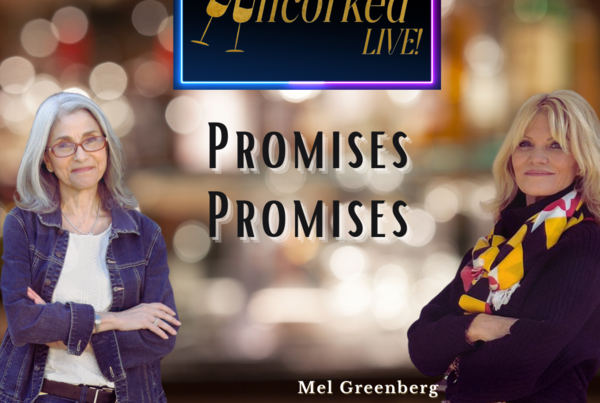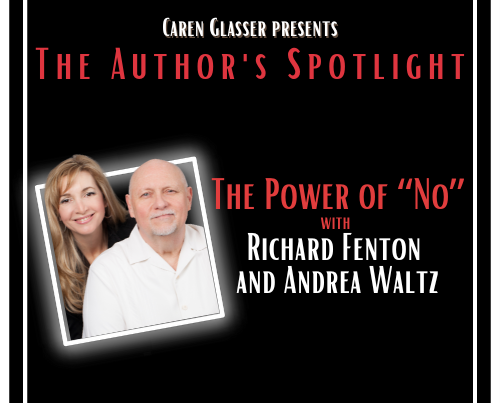I Have Cancer: Now what? A Guide To What’s Next In Life
Yes, cancer is a hard-hitting question on a difficult topic that touches most of us in life in some way – ourselves or a loved one. This is why I was really excited to find a guest for my live Little White Lie Show who is SO uniquely qualified to speak to the LWL community! Here are some highlights of my conversation with the amazing Amy Morrison Regenstreif.
Watch the whole show right here:
So…Now What?
You (or someone you love) have received this horrendous diagnosis and your life will never be the same again.
My guest, Amy Morrison Regenstreif, has had a rare cancer called “retroperitoneal leiomyosarcoma” for over 16 years. Her experience has included six chemos, immunotherapy, radioembolization to her liver, three ports, thoracic surgery to her lung, targeted radiation to her ribs, liver and lung, and more. In 2015, Amy went into anaphylactic shock during a procedure, and had no oxygen to her brain for 40 minutes.
Yet…She woke up three days later, literally an unexplained medical miracle!
 Amy is now a patient advocate who helps others like herself stay on this earth and live with cancer as best they can on an ongoing basis.
Amy is now a patient advocate who helps others like herself stay on this earth and live with cancer as best they can on an ongoing basis.
Amy: “After the shock of learning you have cancer, there are four basic things you need to consider, and this is from me doing this myself and speaking with others…It’s all about negotiating a life of as much control as possible where there really is none.”
Psychology
How do you address the things in your heart and in your mind? If you’re going to have cancer for years, how – really – do you keep going? What do you need to know about fear, getting your needs met, finding joy?
Psychosocial issues. This is big because, basically, everything has changed – your relationships with family and friends, your work, your “free time.” You have to create a whole new world around yourself that you can live in happily. How are you going to manage your work life? How do you negotiate your medical stuff and do your paperwork?
Your medical life
How do you talk to your doctors? What’s the best way to create a treatment plan? How do you deal with insurance issues? How do you research and travel to get the best treatment? Your healthcare becomes a huge part of your life.
Financial issues
“Perhaps the biggest thing is your financial life because, as you know, in our medical system as it stands today, we pay for everything. And the more rare the cancer, the more you’re going to pay, especially for things like drugs and travel.”
When it comes to managing this new normal, Amy says:
“I treat my healthcare as a business, and I’m president of the company! My cabinet are my healthcare professionals, and friends and family that want to help me. There are often times in my treatment where I’ve actually held a meeting to tell people what I need to get done.”
Another big part of this experience is overcoming FEAR.
Naturally, cancer patients are fearful of so many things. Amy tells her people: “If you’re afraid to do something, you’re afraid to ask a question, you’re afraid to make a phone call or go somewhere, it is most likely that you should do it. You feel so great after you do it!” After all, it’s your health, your well-being, and your life!
Here is another key: Ask for what you need!
It’s also important to let people help you the way they know how. Amy knows that people truly want to help but don’t know how, and she wants cancer patients (or anyone with a chronic disease) to be empowered to ask specifically for what they need. So: “I ran out of milk. IF you’re going to the store today, could you please pick me up a carton of milk?”
A single mom in Amy’s group once said she didn’t have anyone to pick up her kids at school. So together they created a chart of her needs which she emailed it her temple, her school, etc. People signed up to come do things for her and her kids, including signing up to have coffee with her on chemo day.
It’s also important to trust yourself in your self-care.
Amy believes in energy, the power of Tai Chi and Qigong and conga drumming – doing what brings you positive energy and makes you feel good. And trusting her “feelings about things.” She shares, “I even walked out on a surgery one day because it didn’t feel right to me that morning, so I said, Stop. I’m leaving.” Wow – powerful!
Amy’s final bit of wisdom is about JOY: “Joyful is a practice. Joyful and grateful..And sometimes you have to have really miserable things happen to you to really appreciate the joy.” Amy walks that talk for sure!
You can find out more about a systematic way to live a full and productive life in the midst of medical hardship by following Amy Morrison Regenstreif here:
Facebook group: Dead Woman Living, A Guide in Long Term Cancer Survivorship and Comedy
Thanks for being part of the Little White Lie Movement!




